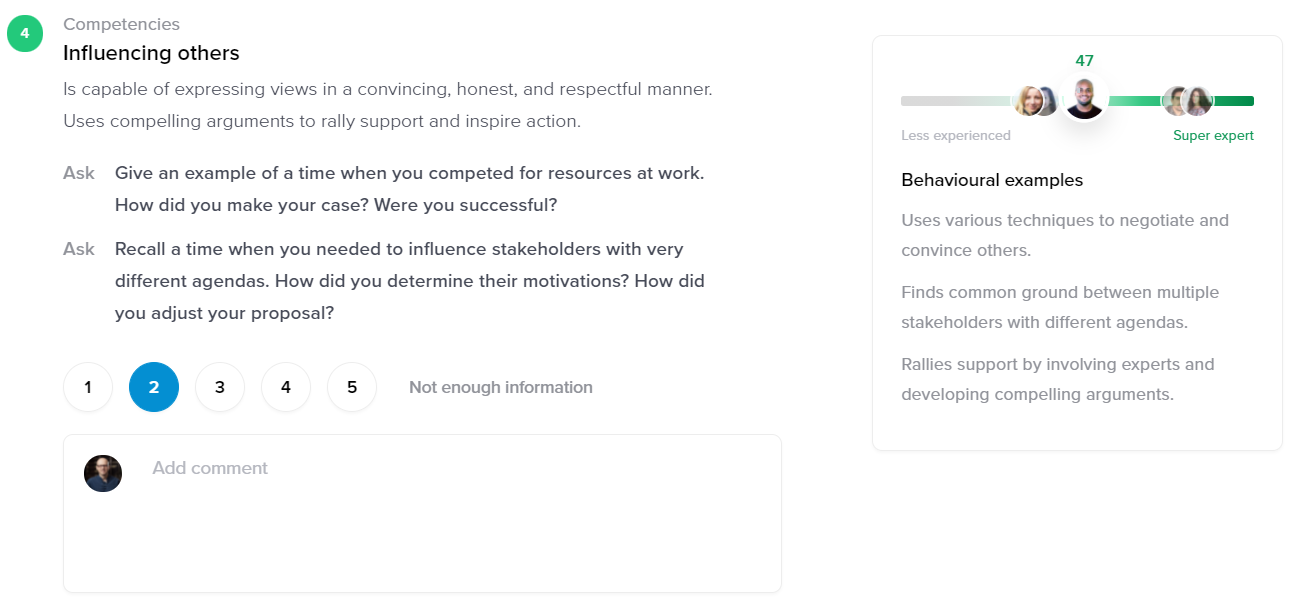Hire slow, not fast
Many recruiters and start-up founders have heard the slogan "Hire fast, fire fast." This exceptionally harmful suggestion can be attributed to Mark Suster who in 2011 published an article called "Startup Mantra: Hire Fast, Fire Fast."
Tõnis Arro
Co-founder, Wisnio and Executive Lab
In 2011, entrepreneur and VC Mark Suster wrote an article for Techcrunch that argued that as humans, we are inherently good at reading people, and our innate instincts for "fit" are much better than our ability to analyse humans on a spreadsheet. Thus the often-repeated phrase "hire fast, fire fast" was born.
It has been repeated hundreds of times in social media and articles about hiring, especially early-stage company hiring. The myth of the manager who "recognises the right person in seconds" is widely known in the corporate world as well.
It's also one of the main reasons why so many hiring decisions go wrong - up to 40%.
Still, the statement is true in one sense - if you hire fast, you have to fire fast. But of course, you shouldn't make hiring decisions quickly.
Unfortunately, this viewpoint is a rare minority. I find it helpful to compare hiring to the decision to marry - a decision that should not be made after a few minutes of conversation!
It has been repeated hundreds of times in social media and articles about hiring, especially early-stage company hiring. The myth of the manager who "recognises the right person in seconds" is widely known in the corporate world as well.
Half-truths and misleading articles
When you read the entire article, you'll find good thoughts on hiring, but his main statement in it is misleading, to put it mildly.
"I don't think that recruiting is any different than any other decision process in a company. You're never really going to know how somebody is going to perform in the role, how good of a cultural fit he or she is going to be and how motivated they're going to become until they're on the inside."
This is a harmful half-truth. Not being sure can be used as an argument against almost anything. Can you know for sure if an organ transplant will be accepted as part of the new body after a surgical operation?
No, you can't. But that doesn't mean that the whole thing has to be cancelled. Same with hiring. You wouldn't know for sure, but still, there are ways to gather data to predict this fit.
Similarly, there are ways to get information about cultural fit with the team the new employee is going to work in, their ability to perform and the nature of motivation - all these things can be measured, and the data used to make quality decisions.
"Not knowing exactly" is far from "not knowing at all" and miles from "no need to find out".
Ready to give data-based hiring a try? Sign-up here for a free Wisnio trial.
Hiring the Kahneman way
A few months after the Suster Techcrunch article, Nobel Memorial Prize in Economic Sciences laureate Daniel Kahneman's book "Thinking, fast and slow" was published.
The bestselling book devotes several chapters to a thorough analysis of hiring practices and proves convincingly, relying on data, that hiring decisions should be made slowly, based on data, not on intuition.
No one would dispute that hiring decisions are the most important management decisions. Likewise, almost everybody agrees that hiring decisions are the worst decisions regarding decision-making quality and certainly the only ones where virtually no data is used.
Everybody agrees that hiring decisions are the worst decisions regarding decision-making quality and certainly the only ones where virtually no data is used.
So why is this "hire fast..." thing well grained in management folklore, but Kahneman's research on the subject mostly ignored?
One reason is apparent - the book (600 pages!) is a difficult thing to handle; a short blog post is much easier to grasp. And many people who repeat this mantra seem not even have read the original post which made much more sense than the numerous superficial iterations of the slogan.
A better hiring process

Example behaviour question from Wisnio's Interview & Evaluation Guide
In his book, Kahneman goes deep into hiring, and in short, his position can be summarised as follows:
- Analyse the requirements of the role and define a small set of measurable qualities. Usually, ~six is sufficient, but no more than ten is ever needed. They have to be measurable and independent of each other.
- Define evaluation indicators (e.g. interview questions to evaluate the above characteristics).
- Evaluate each characteristic separately. Make sure all evaluators score candidates independently to avoid group-think, gut feeling, and HiPPO's opinion influencing decisions.
- Compare candidate ratings and hire the one with the highest score.
The basis for research and data-backed recruitment process really is that simple. For a more in-depth look, please read this article on the hiring process and how to improve it.
As for the number of interviews, one proper interview is often enough. Or, if you prefer, one interview for evaluating team fit and another for all things business-related.
Conclusions
Hiring decisions are not something to take lightly. Especially in an early-stage company where the success or failure of any one individual can have enormous consequences for its survival.
There is no magic touch that some people have, and others don't. You cannot recognise the right person in seconds. It's a dangerous myth.
Good hiring decisions are based on a well-thought-out hiring process. As Kahneman has proved, hiring is not magic, but it does take work and dedication to get it right.